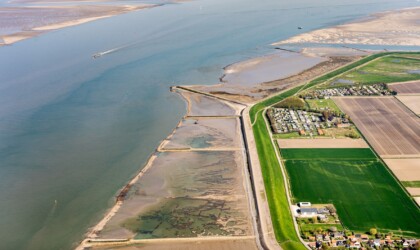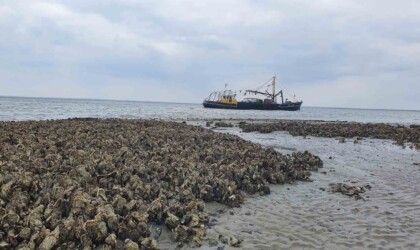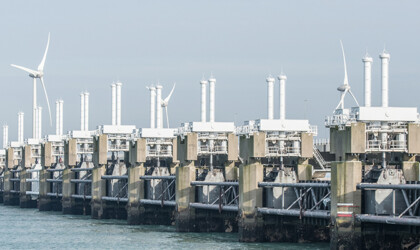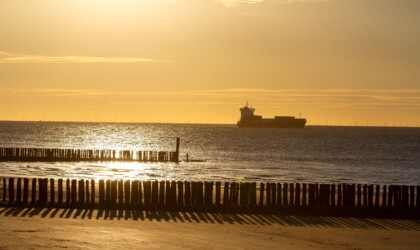The loss of biodiversity and the need for climate adaptation are major global challenges, according to the World Economic Forum. This also applies to the Netherlands, especially to the management of the large waters in the Netherlands.
A number of implementation programs are already underway for the large waters to meet European obligations (Water Framework Directive, Natura2000). There is also the national programmatic approach to large waters (PAGW), which gives an extra impulse to restoring the ecological resilience of national waters. The Ecological Resilience 2.0 project ties in with this.
In 2021, HZ research group Building with Nature delivered the Ecological Resilience project to client Rijkswaterstaat WVL. The final product consisted of a storymap (digital GIS atlas) on the spatial suitability of future Building with Nature measures in the Delta waters. See the final product here.
Three work packages
The study Ecological Resilience 2.0 is composed of three work packages:
- WP1 - Site Suitability: GIS analyses of physical and ecological data and dose-response relationships;
- WP2 - Social benefits: methodology for spatial analyses of business models on landscape transformations in land-water transition zones;
- WP3 - Application in analyses and workshops at two current coastal transition projects running over the next four years, in collaboration with involved stakeholders.
Aim of the project
- Increase the knowledge base on increasing ecological resilience in the Southwest Delta by using Building with Nature;
- Valorization of Building with Nature by opening up business models for eco-engineering in land-water transitions along the Eastern and Western Scheldt for the benefit of stakeholders (governments, NGOs, companies) involved in implementation programs (PAGW, WFD, Natura2000, Long-term Vision, Nature, Delta Nature);
- Contribute to higher education and the human capital agenda, through the provision of practical research and modules.






